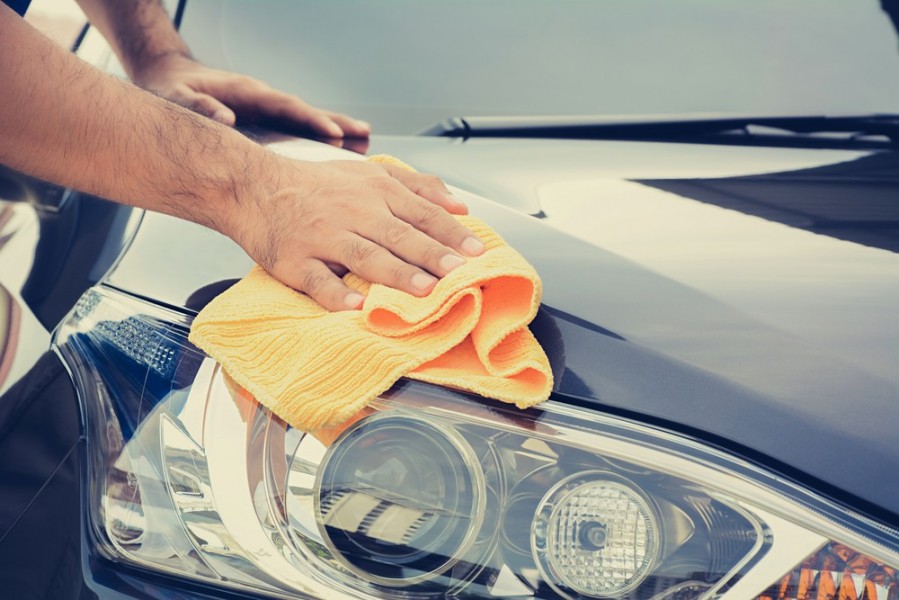10 Simple Ways to Increase Your Car's Lifespan

You love your vehicle and want to do everything you can to keep it looking great while performing at its best all the time. As you know, the minute that you purchased your new vehicle, it lost more than 35% of its overall value. But, don't panic, because that happens to anyone who buys a new vehicle, but if you play it smart and do the right things, you will increase your car's lifespan and retain its value.
At Reliable Body Shop - Albuquerque,in NM we see customers who have kept their cars in top shape despite heavy use and inclement weather for many years, by practicing some of these simple techniques:
1.) A clean car is a happy car: Washing your car makes it look great, and helps increase its lifespan, too. It's always a good idea to wash it at least monthly, because it removes the dirt and grime that can damage the paint.
2.) Don't overlook your underbody: Shiny paint looks good, but the underside of your vehicle is continually exposed to moisture, mud, slime, road salt, and garbage on the road. Use a pressure washer to clean off as much as you can to prevent rust and corrosion.
3.) Make certain carpets are clean and 100% dry: Damp carpets can bleed water onto the frame, leading to potentially serious rust and corrosion. Rubber floor mats might be a sage investment if you live in a wet climate.
4.) Repair body damage if needed: Sometimes we believe that fixing minor body damage is more trouble than what it's overall value. However, leaving damage unrepaired can have negative results in the long-term.
5.) Repair small dents and dings: These blemishes are susceptible to rust and oxidization. Certain states won't permit a vehicle to pass a registration inspection if there are rust holes in the car's body. Depending on the amount of rust you may be able to fix it yourself, but when in doubt, contract a reliable body shop or Paintless Dent Repair company to do the work.
 6.) Touch-up paint scratches: Car paint acts as a protective barrier for the sheet metal beneath. Any scratch in the paint enables moisture to reach the metal, resulting in rust. If you discover a new scratch in your car's paint, touch it up immediately before it gets worse.
6.) Touch-up paint scratches: Car paint acts as a protective barrier for the sheet metal beneath. Any scratch in the paint enables moisture to reach the metal, resulting in rust. If you discover a new scratch in your car's paint, touch it up immediately before it gets worse.
7.) Change ALL of your car fluids regularly: The assortment of fluids in your car are important in keeping it running well. Always refer your owner's manual to see what the fluid maintenance intervals are, then follow them without deviation. Different types of cars have varied oil change intervals, but the general range is normally between 3,000 and 5,000 miles. Driving past that range means your engine will be at greater risk of overheating and increased wear on internal components.
8.) Be prepared for unexpected vehicle repairs: Certain car parts have limited life spans, so it's always a smart move to have them regularly checked to ensure they're in decent shape, and to replace them right away if they're not. Putting those repairs off can result in higher bills than if you had replaced them on time.
9.) Change consumable parts when needed: Brake pads, rotors, hoses and belts, as well as tires, filters, and suspension components all wear down and cease functioning gradually. Keep a log on the condition of these parts so you know when they're due for replacement to avoid emergency repairs.
10.) Be proactive and not reactive: By staying on top of your car's needs, you will be able to extend the life of your car in a big way. We see cars here in Albuquerque, NM that are 15-20 years old, yet they look spectacular, so it's not difficult to do if you make it a priority.
Sources: Yahoo, DIY and Car & Driver










 6.) Touch-up paint scratches: Car paint acts as a protective barrier for the sheet metal beneath. Any scratch in the paint enables moisture to reach the metal, resulting in rust. If you discover a new scratch in your car's paint, touch it up immediately before it gets worse.
6.) Touch-up paint scratches: Car paint acts as a protective barrier for the sheet metal beneath. Any scratch in the paint enables moisture to reach the metal, resulting in rust. If you discover a new scratch in your car's paint, touch it up immediately before it gets worse.
Social